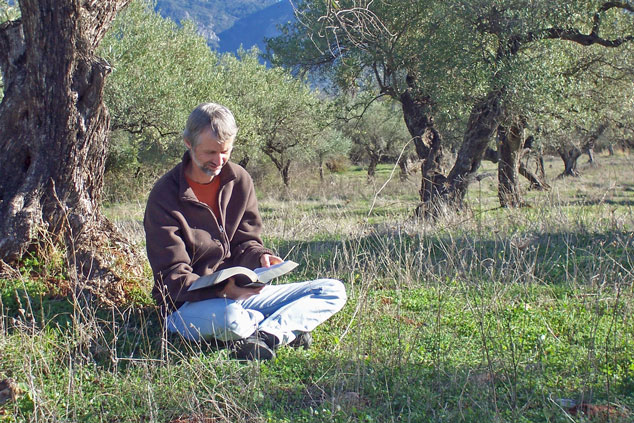Any SBS graduate will recognise the “Why?” question; it is often a good one to ask when engaging with a biblical text. Here, I am asking it in relation to this new platform: why bother? In these first few pre-launch posts I explain my motivation a bit more in detail – for those who are wondering.
So why? Here are six reasons:
1. This is what I love to do. Obviously, a very personal reason. These past several years have been a bit of a crisis for me. I have been asking questions like: What am I doing here? What should I be doing? What is the second half of my active ministry life about? I have been asking these questions a lot.
Then one day I asked myself a different question: What do I enjoy doing more than anything else? This turned out to be an easier one to answer: I love to study a subject and then pass on what I have learned, either in writing or through teaching in a classroom.
So why not take a monthly subject, study it, and then write up what I have learned in the form of a training letter? Hmm…
2. This is where I can make a contribution to SBS, BCC, and others who want to grow in their understanding of Scripture.
Here’s another question I’ve been asking during this time of not being very sure where I was going. What could my role in SBS be, now that I am no longer directly involved in running a school? Is it just to visit various SBS locations and teach for a week (something I definitely enjoy doing), or is there more I can do?
Again, the idea of a training letter made sense as part of the answer. Surely we all want to go deeper in our understanding of Scripture, and a monthly input might help to do just that: keep learning, keep growing.
3. To “Create a Learning Site”. There is a triple double aim [not a mistake] hidden in this name.
First, ‘site’ refers to this website that I am creating. But it also refers to any other place or space you and I make for study and learning.
Second, I say it to myself as well as to anyone reading it. It is what I am doing, and what I call you to do at the same time.
Third, it is a call not only to create such a site for ourselves, for our learning, but also for others, through teaching. In other words, this site is about biblical studies as well as biblical teaching. It seeks to equip both students and teachers of the Word.
4. A different reason for this learning site is an observation I have repeatedly made over the years. There is quite a bit of good biblical scholarship going on. But not much of it seems to reach the church or the missionary community, at least not the ones I have been part of. It’s as if they are two different worlds. I have always wanted to borrow and take from the one to pass on to the other.
We even made this an explicit part of our mission statement as SBS Germany years ago: to be a bridge between evangelical biblical scholarship on the one hand and YWAM and the church on the other. It continues to be part of my passion: to make accessible the good stuff that is out there waiting to be discovered – by you!
5. And then there is The Scandal of the Evangelical Mind, a book by Mark Noll. The scandal is, of course, that there isn’t much of a mind (the missing value: see the previous post!). Evangelicals tend to be activists, always in pursuit of a cause, whether evangelistic, political, social, or otherwise. They are generally not overly interested in thorough study, research, and scholarship. They are doers, not thinkers. Can you think of one evangelical who was awarded a Nobel Prize?
I’d like us to do better than this. And I’d like this learning site to contribute to this.
6. And last but not least: there do not seem to be that many good biblical studies sites ‘in the middle’. There are plenty of places offering devotional or thematic Bible study, some of them great and others rather narrow-minded, simplistic, or shallow.
And then there are sites that aim at the specialist or that discuss the latest news and developments plus new resources on a relatively high academic level. They can be helpful, but they also tend to be rather detailed. Such as: Were there really no camels in the Ancient Near East in the days of the patriarchs (and does this therefore “prove” that Genesis is “wrong”)?
Go to Tyndale House, an excellent scholarly site, if you want an answer to that question. Great stuff, and worth reading, but I’m not sure if this will help us all that much in our daily reading or study of the Bible.
It is of course possible that I have missed many of the good websites. But there does seem to be room for one more, an additional bridge to make biblical scholarship accessible and to help those who teach (or who are simply trying to understand their Bible better). So here I go.
